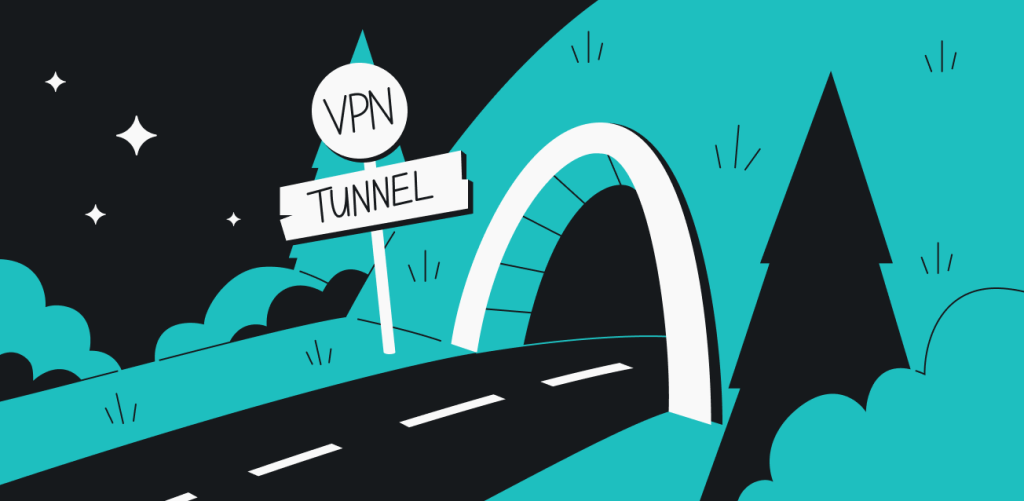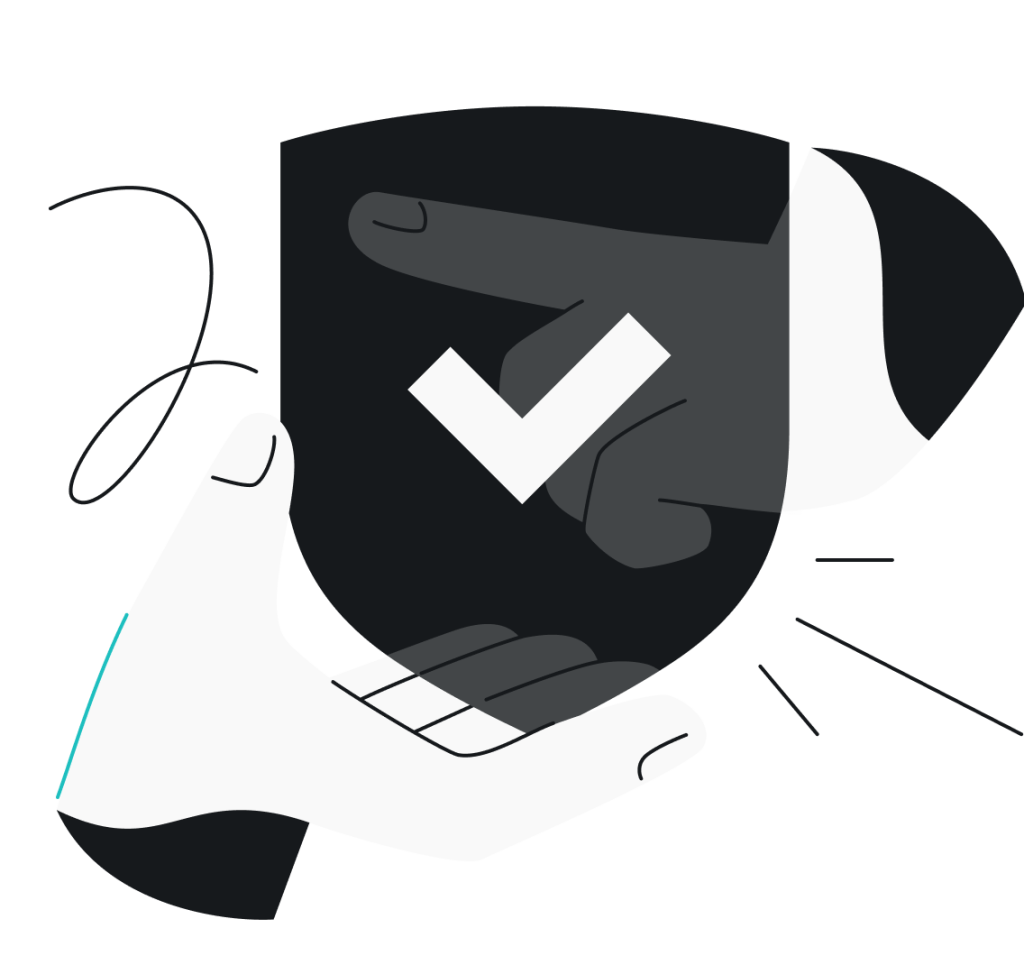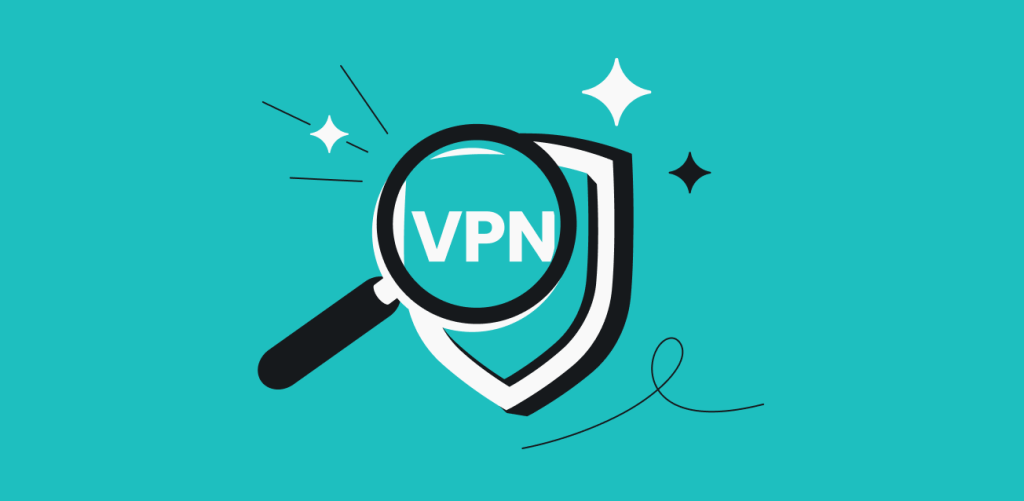
Internet service providers (ISPs), government agencies, and ad companies all want your data. As the owner of your data, you don’t want to give that up to just anyone. It’s none of their business. With this in mind, you might wonder how to hide internet activity.
If you are wondering how to hide your internet activity, the most effective method is to use a VPN. You can always use a Tor browser, stay on HTTPS websites, and use encrypted email services, but we’re looking for a one-and-done solution that is most easily achieved with a VPN.
Six ways you can hide your internet activity
Quite a few entities can see your search history and what you do online. So, naturally, the first question people have is how to be anonymous on the internet. While it’s possible to hide your browsing from ISPs (Internet Service Providers) and other agencies, you can’t be anonymous. You can still hide your internet activity with these tips:
#1: Use a VPN (Virtual Private Network)

What is a VPN? It stands for Virtual Private Network, it’s a privacy tool that can hide your internet activity and connection data. It is a private network routing your data via a company-run server rather than volunteers. As a result, VPNs have greater speed and connection stability.
VPNs offer blanket protection beyond your preferred browser. That means it goes beyond hiding search engine data from your internet service provider: any app you use on the device is protected. VPNs also lack the same node vulnerability, as your real IP address is masked under multiple layers of encryption.
You may feel tempted to start with some free VPNs, but those providers don’t have the same infrastructure. Free VPNs, compared to paid ones, often demonstrate a worrying lack of security.
For ultimate security, stick with a no-logs VPN provider like Surfshark that doesn’t keep any connection data or browsing history. Better yet, combine your VPN with a data removal tool like Incogni, which boosts your privacy by scrubbing your personal information from data broker sites.
#2: Use Tor to increase your privacy

Tor browser
A Tor browser is a free tool for privacy nuts who want to hide their browser-based connection history. Tor uses a worldwide network of volunteer-run computers to hide user data. It’s also free, which makes Tor one less thing to spend your money on.
Trying to track someone who is using a Tor browser is messy, but it is doable. Websites that don’t support HTTPS still have “node vulnerability,” meaning your data is still visible where your IP reads out.
Tor browsing also is incredibly slow. The security gained by bouncing your connection off multiple network locations is excellent for being almost anonymous but not so great for convenience.
#3: Only use HTTPS on browsers
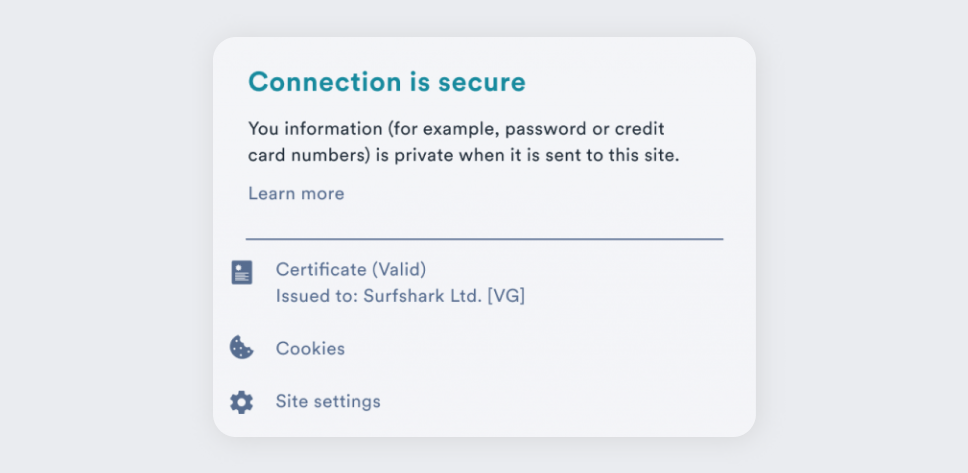
How to check if a website is HTTPS secured
HTTPS services are a must-have for almost all websites in 2021. For the user, HTTPS is a combination of two distinct things:
- HTTP (Hypertext Transfer Protocol) – It’s the language that allows your computer to connect to the internet.
- SSL (Secure Sockets Layer) / TLS (Transport Layer Security) – The “S” in HTTPS is a security protocol part of modern web servers that can encrypt your connection.
In the upper-left-hand area of your browser, you’ll notice a padlock icon reflecting the SSL certificate. So if you are wondering how to hide browsing from ISPs, this is a great start.
Note that if you’re using Google (an HTTPS-secured website), it still collects your data, regardless of the existence of an SSL certificate. HTTPS might hide your web search history from your ISP, but it’s not safe from websites like Google or Facebook if you’re using their services.
#4: Use encrypted email services
Protecting your internet traffic is one part of your online security efforts. However, you’re still likely to share a lot of information through emails, many of them unsecured. To address this gap, you need an encrypted email provider.
Email encryption providers ensure that any emails you send utilize end-to-end encryption. This means if a thief were to use a packet grabber to intercept it, they couldn’t analyze the data.
Email encryption services are adept at preventing email snooping. However, they won’t help you hide browsing history data. It is a good extra step to prevent prying eyes from accessing personal communication.
#5: Change your DNS settings to run over HTTPS or TLS
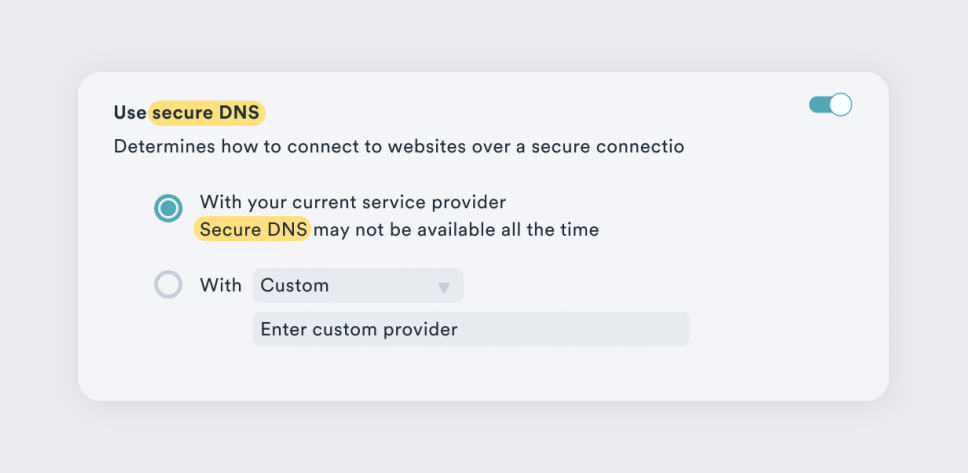
Where to find secure DNS on your browser
Domain Name Systems (DNS) can be used to identify you on the internet. Think of it like “the phone book of the World Wide Web.” Only instead of sifting through yellow pages to try and find someone, it’s like asking the operator to connect you to someone – and the operator will tell the call recipient who’s calling.
The problem is that most DNS requests travel unprotected. ISPs and other data-hungry snoops can see these requests. They tell them about what sites you visit, and often that’s enough to determine what you like.
Luckily, you can change your DNS settings to run over secure modes. All you need to do is go to the network security settings of your browser to take care of this. Search for “secure DNS settings” or “DNS over HTTPS.”
Note: changing DNS settings will only affect your browser traffic. It will not carry over to other methods of sending and receiving data, such as apps and software.
VPNs like Surfshark, however, establish such DNS settings automatically.
#6: Don’t rely on Incognito Mode
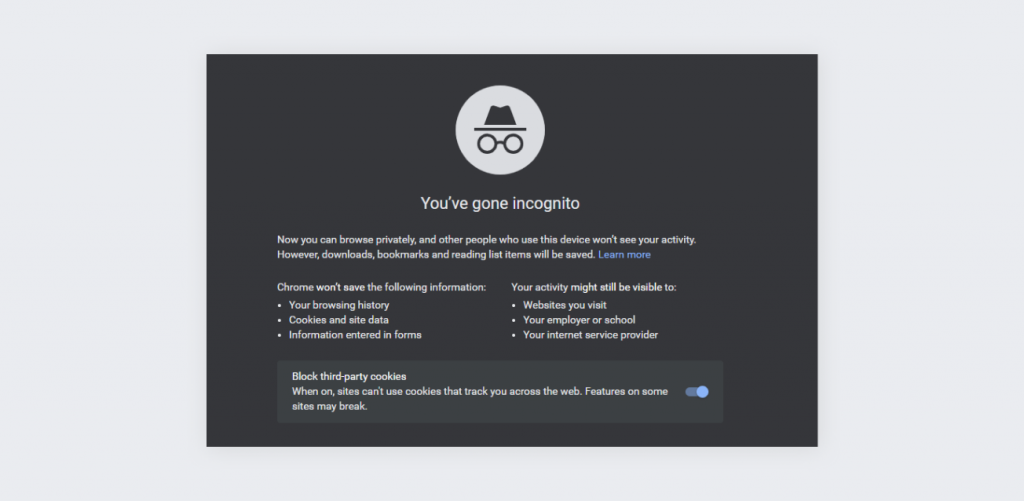
Incognito mode
Many browsers have the option to use a private mode known as “incognito.” A majority of people overestimate Incognito mode’s ability to hide your data.
This private browsing mode is great if you want to delete cookies, history, and other data on your computer. However, it doesn’t prevent workplaces, search engines, and other web pages from collecting data.
Server-side data will still contain the IP addresses and other data of anyone who accesses their information. So, incognito mode is great at avoiding annoying targeted advertising but not so great if you want to hide your internet traffic and browsing activity.
Want the best online privacy tip?
It’s best to combine all the tools if you want to browse as anonymously as possible or protect your online activity from your internet provider, government agency, or anyone in between. You are the owner of your personal information, don’t let anyone tell you otherwise. But if you want the best online privacy tip on how to hide your internet activity, look below:
Get a VPN.
A VPN combines the security of DNS protection and the flexibility of Tor browsing into a single practice. It encrypts your data with a dedicated and worldwide list of servers you can use to protect yourself from third parties.
Surfshark can help you ensure you are protected in your internet activities to secure your digital life.
Surfshark does not encourage using a VPN in any way that would potentially violate the Terms of Service of other service providers.

